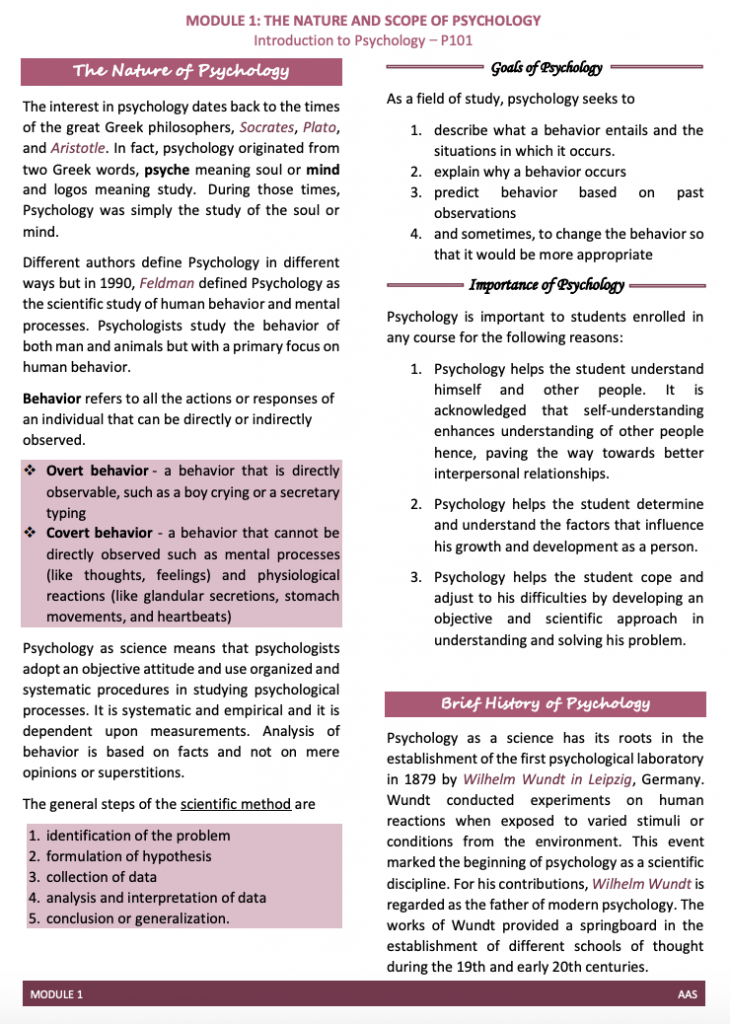The Nature and Scope of Psychology (Grade A+)
Summary:
Module 1 of the Introduction to Psychology course explores the nature and scope of psychology. Psychology originated from Greek philosophers and is defined as the scientific study of human behaviour and mental processes. Behaviour can be overt (directly observable) or covert (not directly observable). Psychology as a science adopts an objective attitude and uses systematic procedures. The scientific method involves problem identification, hypothesis formulation, data collection, analysis and interpretation, and conclusion or generalization.
The goals of psychology include describing, explaining, predicting, and sometimes changing behaviour. Psychology is important for self-understanding, growth and development, and problem-solving. The history of psychology includes establishing the first psychological laboratory by Wilhelm Wundt, leading to different schools of thought like structuralism, functionalism, behaviourism, and Gestalt psychology.
Current perspectives in psychology include the behavioural perspective, psychoanalytic perspective, cognitive perspective, humanistic perspective, neurobiological perspective, and socio-cultural perspective. Each perspective offers a unique understanding of behaviour and mental processes.
Psychological research methods include archival research, survey method, naturalistic observation, case study, correlation research, and experimental research. These methods help psychologists gather data and draw conclusions about behaviour.
In summary, Module 1 provides an overview of the nature and scope of psychology, its historical foundations, different perspectives, and research methods used in the field.
Excerpt:
The Nature and Scope of Psychology
MODULE 1: THE NATURE AND SCOPE OF PSYCHOLOGY
Introduction to Psychology – P101
The Nature of Psychology
The interest in psychology dates back to the times of the great Greek philosophers, Socrates, Plato, and Aristotle. In fact, psychology originated from two Greek words, psyche meaning soul or mind and logos meaning study. During those times, Psychology was simply the study of the soul or mind.
Different authors define Psychology differently, but in 1990, Feldman defined Psychology as the scientific study of human behaviour and mental processes. Psychologists study the behaviour of both man and animals but primarily focus on human behaviour.
Behaviour refers to all the actions or responses of an individual that can be directly or indirectly observed.


Reviews